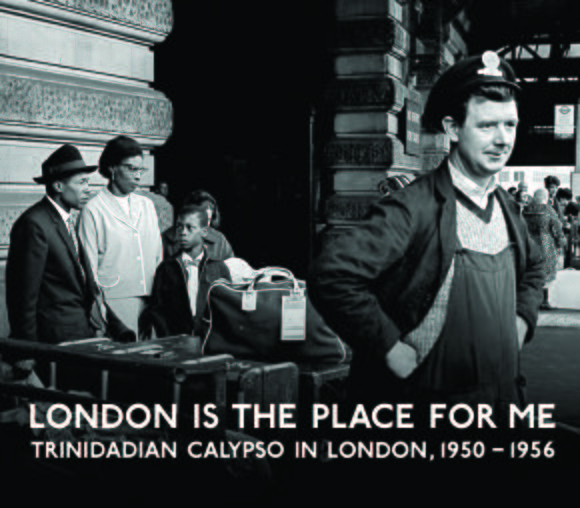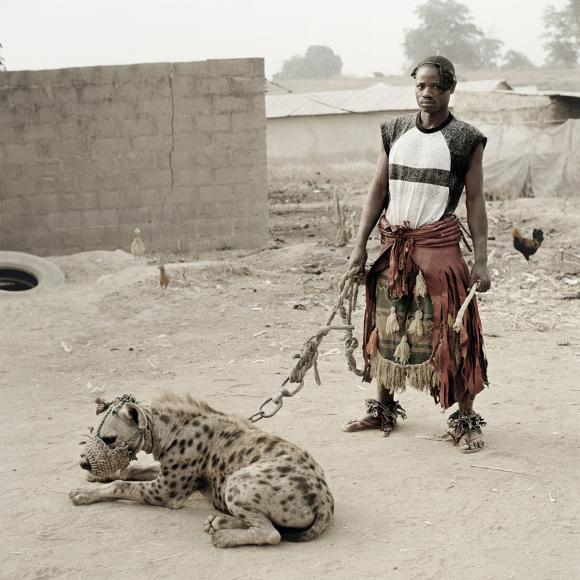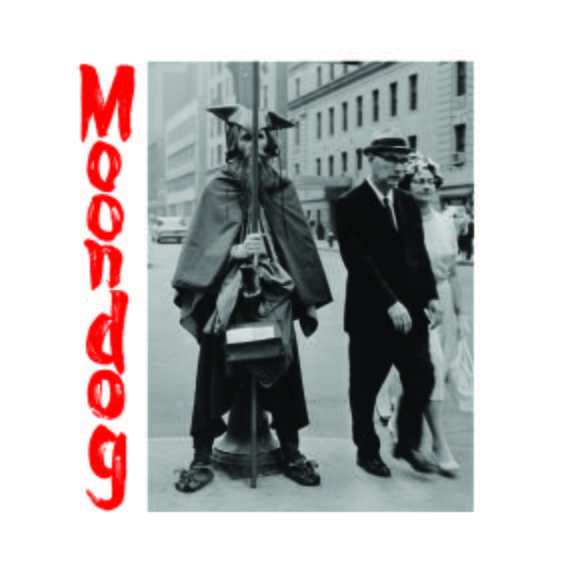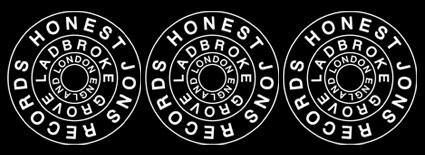Label Feature: Honest Jon's
- Date published
- 01-jul-2013
Music connoisseurs call it London’s ultimate record collector’s paradise, and, to many local music-addicts, it is like a second home where they can unashamedly share in their love of music with the family of experts behind the counter. Honest Jon’s originally opened in 1974 on Golborne Road in London's Ladbroke Grove, moving around the corner five years later onto the famous Portobello Road, where it has built up a reputation over the years as a stomping ground for record collectors, music lovers, producers, and musicians from all around the world. The Clash caught the reggae and dub virus at Honest Jon’s. James Lavelle, founder of the legendary record label Mo’Wax, used to work here as a clerk before he rose to notoriety. Damon Albarn, singer from Blur, and co-creator of eclectic pop project Gorillaz, has long been a regular at Honest Jon's too, but not only as a customer. Together with storeowners Mark Ainley and Alan Scholefield, Albarn has been involved with Honest Jon’s record label since 2001. The label is a kind of musical mirror of all those sounds that have always been available at the shop. In a “blinkers-off” approach, their release list covers lost Reggae, old and new Afro, variations of Jazz, Calypso, and Folk that have long been forgotten by popular culture, as well as contemporary Folk, dance, and the new electronic avant-garde. Moreover, every release is more than just your typical music product. Elaborately illustrated booklets and brilliantly researched liner notes provide information reaching far beyond the music and give substantial information about the various musical cultures all around the world. Obscure recordings from the dawn of the gramophone era more than a hundred years ago, alongside illustrious veterans like Cedric Brooks, Candi Staton and Lord Kitchener, and contemporary artists like Actress, the Hypnotic Brass Band, T++, and Morphosis are a testament to the fact that Honest Jon’s understanding of sound has more than one focus. For Carhartt Radio, Honest Jon's co-owner Alan Scholefield selected some music from this profuse catalogue, which staffer Budgie then mixed into a special multidimensional narrative, in which every track tells a story of its own, spanning a time period from the fifties to the present. To take a look behind the scenes of one of London’s oldest record stores, and its internationally celebrated music label, we talk to Alan Scholefield and Mark Ainley about their first days at Honest Jon's, some funny stories while digging for records, and more.

How and when did you first start working at Honest Jon’s?
Alan Scholefield: The late summer of 1988, when Jon converted the earth-floored cellar of the shop into the infamous "Jazz basement".
Mark Ainley: Nearly thirty years ago. I had been DJing and hanging around record shops for ages by then. A load of people applied for the job. You had to know a lot and drink a lot. I had a mate in Leeds who was at school in the mid-sixties with the original Honest Jons, which was a leg-up.
What was the impetus behind the start-up of the label Honest Jon’s in 2001?
Alan Scholefield: It had been gestating for years, but the final push was when Damon gave me and Mark a cassette of Kokanko On The River (Mali Music) one day and said, "we should start a label". Hence Kokanko plays us out at the end of the mix.
Mark Ainley: This customer, Damon Albarn, from the Gorillaz - a good customer, open to everything - he had a record he’d made in Mali, which he wanted to put out. He knew his label, EMI, was the wrong home for it.
If you could describe the Honest Jon’s sound in one sentence, what would you say?
Alan Scholefield: Eclectic but specific.
Do you think that future generations will remember the music you release like we remember the music of Bach, Beethoven or Mozart?
Alan Scholefield: That's a tall order. But hopefully future generations will find their own connections.
Mark Ainley: No chance.
What process do you follow for new releases or compilations?
Alan Scholefield: For A and R issues, best ask Mark.
How important are the non-musical components of your releases, ie. packaging and album art?
Alan Scholefield: Hugely.

For many people the Honest Jon’s shop and its website functions not only as a store also as a tastemaker. Do you believe that there is a strong need for filters in times where the market get flooded with releases?
Alan Scholefield: Definitely. And not just with current releases. Try figuring out Monk, or Ellington, or Sibelius, with only Spotify and Youtube as your guide. You'd be lost.
What's your view on the value of music today? In what way does the abundance of music change our perception of it?
Alan Scholefield: Abundance is not a problem. I like Duke's adage - there are only two kinds of music, good and the other kind.
What distinguishes Honest Jon’s from other record stores?
Mark Ainley: There must be thousands of fantastic record shops in the world, even now. All of them somehow unique. One thing about us: I think Honest Jon’s still shows its roots in this legendary part of London, Ladbroke Grove... and we’ve proliferated in some creative ways.
How important is the district in London where your store and record label is located for what you do? Not only today, also in retrospect.
Alan Scholefield: Music runs in Ladbroke Grove's bloodstream. Think of a collage of Denis Preston's studio in Holland Park (the guy behind several London Is The Place sessions), the movie Performance, the basement across the road from us where Hendrix rehearsed, Rough Trade's store in Kensington Park Road, Johnny Rotten buying reggae 7s in Honest Jon's, Horace Andy and Augustus Pablo turning up in a car with a boot-load of 12s. That's Ladbroke Grove. Not to mention 60 years of Carnival, when for 2 or 3 days, music takes over.
There seem to be two fundamental tendencies in music today: on the one hand, a move towards complete virtualisation, where tracks and albums are merely released as digital files. And, on the other, an even closer union between music, artwork, packaging and physical presentation. Where do you stand with Honest Jon’s between these poles?
Alan Scholefield: Utterly with the latter.
How did you select the tracks for your Carhartt Radio show?
Alan Scholefield: With difficulty. In an hour it's impossible to pull in all the strands of the narrative that make up the label, so apologies to those who have made a huge contribution and are not represented. Basically I thought of a bunch of stuff I wanted to include and then Budgie, who works for us, went off and came up with his own mix-tape, which he's quite good at. I'm glad that certain people survived the cut: Moondog, Cedric, Candi, Young Tiger, Lobi (the Djembe was the club we saw him play at in Bamako - mind-blowing)...

Are you still going oversees to look for rare records to sale? As I know you did that in the past. What was the most funny story while digging?
Alan Scholefield: American trips are part of the mythic past! I remember once Alamo upgraded us to this enormous silver Cadillac and after a couple of weeks' buying this was completely stuffed with gorgeous Rare-groove and Jazz LPs. About 100 miles out of St Louis the tyres blew and we ended up in a ditch in a cornfield. A sheriff turned up and wanted to arrest us but he was so confused by a couple of English guys driving a Cadillac filled to the brim with shitty old records that he ended up helping us change the tyres and getting us back on the road.
If you could be in any band, living or dead, for a day which band would it be?
Alan Scholefield: Lillian Leach And The Mellows.
What old albums you rediscovered lately and what makes them special?
Alan Scholefield: As it happens those mid-period Impressions LPs, just before Curtis left to go solo. The early stuff is so iconic, and Curtis's solo albums so stupendous, that it's possible to neglect albums like the brilliant Check Out Your Mind. Can't You See - wow.
Any musical guilty pleasures?
Alan Scholefield: Jethro Tull live in Vancouver August 1970. My brothers got me stoned for the first time. Apparently I lost it during the drum solo.
Mark Ainley: None. Clean as a whistle.
Who are your favorite heroes/ heroines in fiction?
Alan Scholefield: Molly and Leopold Bloom.
Mark Ainley: The Mumblin' Guitar, The Lesbian Body, Dan in Dixie Fried, the Green Knight, Gilda, Burning Spear's Creation Rebel, Cross Damon in The Outsider, Victor Baton, Claude in Amours De Voyage, Charley Varrick, Tom Doniphon, St Julian the Hospitalier, Charlie Bigger, Seth Brundle, Ocean (to Cynthia), Lady Macbeth Of Mtsensk, the Small Axe, Bugs Bunny, Don Quixote, the person Bob Andy is singing about in You Don't Know, Krapp, Malcolm Mooney in W.S. Graham, Bennie in Bring Me The Head Of Alfredo Garcia... There are tons... Millions.
Who are your favorite heroes/ heroines in real life?
Alan Scholefield: John and Alice Coltrane.
What can music do which all other art forms can not?
Alan Scholefield: One good thing about music, when it hits you feel no pain.
You are located in London. What are your favorite spots and secrets in your hometown that you would recommend to somebody that comes around for a visit.
Alan Scholefield: Golborne Road on a Saturday, Columbia Road on Sunday. Oxlea Wood and Epsom Forest. The Freud Museum. A circumnavigation of Blackheath followed by tea at the tea-hut. Turkish food in Stokey, then check out what's on at Oto...


